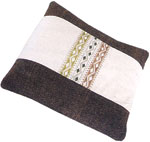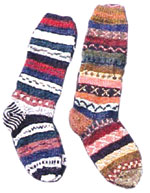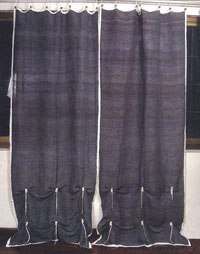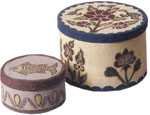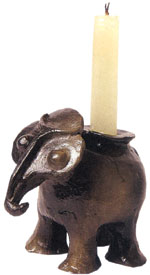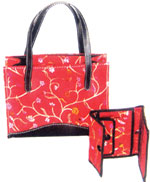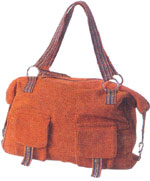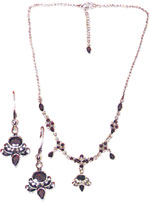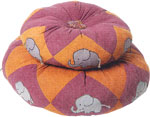A few years ago, Mithileshwori saw little reason for hopes or dreams. She'd been married at 13 and had little education. Her marriage had turned sour and she was now a desperately poor single mother of two children.
Mithileshwori occasionally made small sums of money creating and supplying Mithila paintings to vendors in Kathmandu. But demand and payments were unreliable, she still did not earn enough to send her kids to school, and often simply did not have the cash for the supplies she needed for her income-generating art. That's where fair trade organisations come in. Mithileshwori heard
of Mahaguthi, one of Nepal's pioneering fair trade companies, and arranged to supply them a trial lot of paintings. She was paid immediately-Rs 7,000, more than she had ever earned at one go. Today, she earns about Rs 400,000 annually, in part because fair trade firms like Mahaguthi give their producers start-up loans so people like Mithileshwori can set up shop on a structured larger scale.
"Producers first," says Sunil Chitrakar, executive director of Mahaguthi, describing fair trade. "The focus is always on producers." The 14 fair trade organisations in Nepal under the Fair Trade Group Nepal (FTGN) umbrella work on the principle of dealing directly with marginalised groups, cutting out middlemen. They ensure that their suppliers earn more than minimum wage, provide low interest loans for business and education, health care, and childcare, and encourage sustainable green production practices. Fair trade started out as a fringe social justice
movement, and today conscientious consumers help empower over a million-and-a-half once-disadvantaged producers of all kinds of goods-coffee from Guatemala, quinoa from Ecuador, lokta paper from Nepal.
Culture, rather than straightforward business is the focus of Fair Trade Group Nepal. "When people buy our products, they're not just getting a mat or a cup or a doll, they're getting an entire story-where the product comes from, who made it, how," says Chandra Prasad Kacchipati, executive director of fair trade company Sana Hastakala, and secretary of FTGN.
He says an essential part of running a fair trade business is developing a better work culture-where producers and marketers work together for mutual benefit, "like a family." People can work from home, develop their skills and earn a fair wage. "It becomes about more than money-it's about pride," says Kacchipati. Nepal's fair trade companies work with more than 7,000 artisans and craftmakers, mostly from underprivileged and traditionally oppressed communities.
FTGN is supported by a European Union Asia Invest program, Fair Trade in Nepal, which helps it position and market Nepali fair trade products better in the European market. The challenge now is to lobby for fair trade-friendly policies at the national level, so the movement can grow, and resources can be ploughed into the all-important areas of better design and quality control. "In other countries, fair trade groups get tax breaks, but here we are treated like any other business undertaking," explains Kacchipati.
"We'd be able to direct more funds to start-ups and social welfare for producers, if we had government support," says Kiran Khadgi of the fair trade Khumbeswar Technical School. And that's essential because, after all, fair trade is such a potent way to alleviate poverty because it starts at the lowest level, and empowers individuals.
Prices as quoted in Fair Trade Group Nepal Member Organisations\' Portfolio
|
|
|
|
|
|
|
|
|
|
|
|
|
|
|
|
|
|
|
|
Garnet and Sterling |
|
Aripana Bed Cover Aripana Curtain |
Ball Cushion Small |
|
|
|



